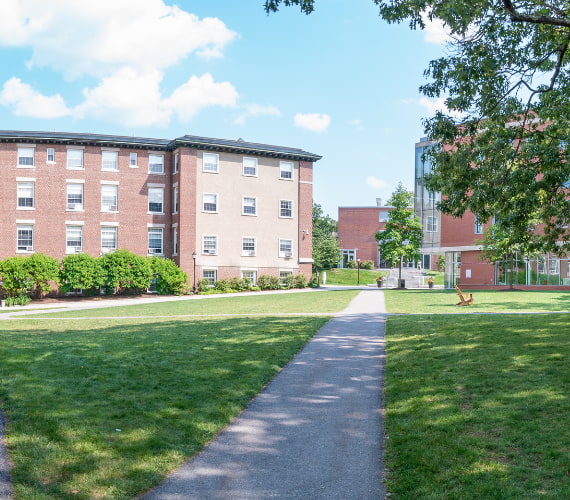 Among the numerous populations particularly vulnerable to the pandemic’s impact, those with substance use disorders have experienced monumental hurdles this year.
Among the numerous populations particularly vulnerable to the pandemic’s impact, those with substance use disorders have experienced monumental hurdles this year.
A panel of experts from the addiction treatment and recovery field spoke at the virtual Regis College President’s Lecture Series on Health the evening of November 10 about their experiences supporting and advocating for their clients and patients over the past several months.
Moderated by Kevin Henze, an assistant professor of counseling psychology and addictions programs, the presentations covered a wide range of areas from how individuals in the substance use disorder community are coping to how organizations pivoted their care delivery.
“Substance use disorder is a condition that makes you more vulnerable to COVID-19 according to the NIH, but this community is incredibly vulnerable to changes in daily life and it is a priority population to focus on,” explained Jessica Hulsey, the founder, CEO, and director of the Addiction Policy Forum.
Hulsey’s organization conducted a survey this spring of more than 1,000 people in the substance use community – from those with active substance use disorders to those in treatment to families – and found increases in overdoses and substance use, as well as a significant disruption to recovery services during the pandemic.
“Hungry, tired, lonely, and bored are all triggers to be mindful of,” Hulsey said. “And those are feelings pretty much everyone in this country has had for a significant amount of time.”
For Kristin Nolan, senior vice president of behavioral health at Spectrum Health Systems, the pandemic required a complete alteration to their operations. Spectrum offers an array of addiction treatment services across Massachusetts, including inpatient detoxification, residential rehabilitation, and peer recovery support.
When the pandemic hit, Spectrum had to rethink how they delivered meals to residents, continued counseling services, and cared for those who were positive with COVID-19 but also sought addiction treatments.
“It was one week we were OK and the next week things got very interesting to say the least,” said Nolan. “We can learn a lot from each other in how we all responded. Telehealth is here to stay, and provider flexibility is going to be more important.”
The panelists agreed that being able to use telehealth for appointments and counseling services has been a silver lining to the pandemic restrictions. Dr. Sarah Bagley, the medical director of the Catalyst Clinic at Boston Medical Center, said virtual appointments have been a positive for patients with transportation challenges or who have difficulty keeping track of schedules.
“There has been a dramatic change to care provided to patients in some exciting ways,” Bagley said. “But at the same time, going virtual has the potential for further exacerbating inequities such as patients who don’t have access to mobile devices or the Internet.”
In some cases, despite the risk of COVID-19, addiction support services have continued without interruption. Warren Nicoli, director of Bay State Community Services Recovery Center, shared that their Hospital Emergency Action Recovery Coach Team has not stopped its in-person work. The coaches serve as advocates for those who arrive in area ERs with substance use or who overdosed.
“From the beginning of the pandemic our coaches were in the ERs 24 hours a day, seven days a week,” said Nicoli. “We talked with them about doing it by phone and they refused. I can’t say enough about the work they have done.”
Since 2007, the Regis President’s Lecture Series on Health, in partnership with Harvard Pilgrim Health Care, has featured insight from industry experts that inform health care professionals and the public about contemporary health and wellness issues.


